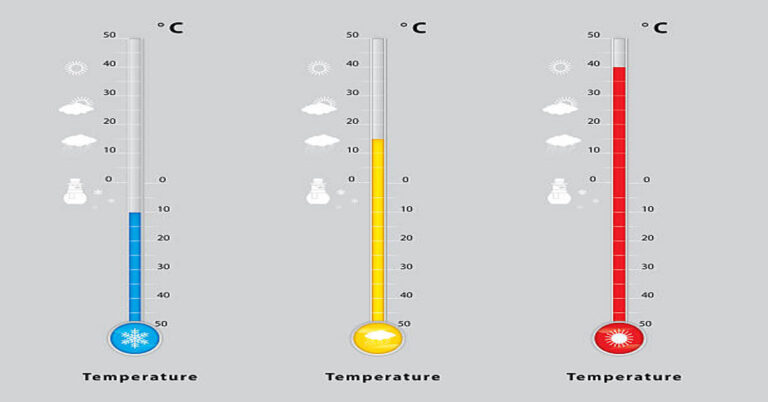
The internet today offers countless ways for people to stream and access media. Video-sharing platforms such as YouTube, Vimeo, and Dailymotion have changed how we consume entertainment, information, and education. However, sometimes users wish to save these videos offline for personal study or viewing convenience. This demand has given rise to online video downloaders like Y2Mate.
Y2Mate became popular as a web-based platform that allowed users to download and convert online videos into different formats. Although its functions attracted millions of users worldwide, it also raised serious legal, ethical, and cybersecurity concerns. Understanding what Y2Mate is, how it works, and the implications of using it is crucial for anyone navigating the digital world responsibly.
This article explores Y2Mate in detail, explaining its operation, benefits, risks, legality, and safer alternatives — providing a balanced, educational perspective for readers.
1. What Is Y2Mate?
Y2Mate is an online tool originally designed to enable users to convert and download videos or audio from online streaming sites. It primarily targeted content from platforms like YouTube, Facebook, and other multimedia sites. Unlike software that requires installation, Y2-Mate operated through a web browser, making it easily accessible from any device connected to the internet.
Users could paste a video link (URL) into Y2Mate’s input field, select a format such as MP4 or MP3, choose a resolution, and then download the converted file. This simplified process made it extremely popular among students, professionals, and content consumers looking to store videos offline for personal viewing.
However, because Y2Mate was associated with the conversion of copyrighted materials without proper authorization, it quickly drew legal scrutiny. As a result, many versions or mirrors of Y2Mate have been restricted or taken down in several countries.
2. How Y2Mate Works: The Technical Perspective
At its core, Y2Mate functioned as a video-to-file conversion interface. When a user provided a link from a supported website, the system extracted video data, converted it to the requested format, and generated a downloadable file. This process involved several key steps:
| Stage | Description |
|---|---|
| 1. URL Parsing | Y2Mate scanned the video link to identify metadata such as title, file size, and available resolutions. |
| 2. Video Stream Extraction | It separated the media stream (video and audio) from the webpage, similar to how browser extensions fetch embedded content. |
| 3. Format Conversion | Using built-in codecs, the platform converted the video stream into user-specified formats such as MP4, 3GP, WEBM, or MP3. |
| 4. File Compression | Some conversions applied compression to reduce file size while retaining reasonable quality. |
| 5. Download Link Generation | Once processed, Y2Mate generated a temporary download link for the user to retrieve the file. |
This entire operation took place through the browser interface, which meant users didn’t need to install any software or provide login credentials.
3. Key Features of Y2Mate
While the legality and ethics of its use are debatable, Y2Mate gained attention for its convenience and accessibility. Its key features included:
- Multi-format Conversion:
Y2Mate supported video downloads in several resolutions — from 144p to 1080p or higher — and audio formats such as MP3 or M4A. - Browser-based Access:
Unlike traditional desktop applications, users didn’t need to install Y2Mate, which made it convenient for quick conversions. - Free Usage:
Y2Mate offered free access without subscription fees, contributing to its wide adoption. - Multiple Platform Compatibility:
The website worked on both desktop and mobile browsers, supporting Windows, Android, macOS, and iOS devices. - Instant Download Links:
Once processed, users could immediately download the converted files without waiting periods. - Support for Multiple Sites:
Though primarily known for YouTube conversion, Y2Mate also claimed compatibility with other media-hosting sites like Dailymotion and Facebook.
While these features made Y2Mate a preferred tool for many users, the simplicity also led to misuse, especially when people downloaded copyrighted videos or music without permission.
4. The Legal and Ethical Considerations
Perhaps the most important aspect to understand about Y2Mate is its legal status. The use of any platform that downloads or converts copyrighted content without the creator’s authorization may violate copyright law in most countries.
Copyright Laws and Digital Media
Copyright protects creative works such as videos, songs, and images from unauthorized distribution. YouTube’s terms of service clearly state that users cannot download or redistribute videos without permission, except through official tools such as YouTube Premium’s offline feature.
Thus, using Y2Mate to download such content for redistribution, uploading, or commercial purposes can be illegal. Even for personal use, the legal boundary can be unclear, depending on the jurisdiction. Some countries allow personal offline use under “fair use” or “private copying” exceptions, while others prohibit it entirely.
Ethical Implications
Beyond legality, ethical concerns are equally important. Content creators invest significant time and effort in producing digital material. Downloading their content without consent deprives them of rightful revenue generated through ads or subscriptions. This practice indirectly discourages creativity and fairness in digital ecosystems.
Therefore, users must approach platforms like Y2Mate responsibly — using them only for non-copyrighted, freely available, or educational materials.
5. Is Y2Mate Safe to Use?
Safety is another major concern with Y2Mate and similar free download websites. While many users found the service convenient, cybersecurity experts have warned about potential risks, including malware, pop-up ads, and phishing attempts.
Y2Mate’s original site often displayed intrusive advertisements and redirects. Some of these redirects led to malicious or fraudulent pages attempting to trick users into downloading harmful software or providing personal information. Since Y2Mate wasn’t an officially verified platform, its content security couldn’t be guaranteed.
Common Security Risks:
| Risk Type | Description |
|---|---|
| Malware Downloads | Hidden malicious scripts could infect a user’s device, leading to data theft or damage. |
| Fake Download Buttons | Users might accidentally click deceptive ads disguised as download links. |
| Browser Notifications Spam | Y2Mate often prompted users to enable push notifications, which later delivered spam messages. |
| Phishing Links | Some pages impersonated Y2Mate or video platforms to collect user credentials. |
| Data Privacy Issues | Since Y2Mate collected user IP addresses and activity data, privacy concerns were significant. |
Due to these risks, many cybersecurity professionals advise users to avoid using unverified video downloaders and instead rely on safe, legal methods.
6. Why Y2Mate Was Taken Down or Blocked
Over the years, multiple Y2Mate domains have been blocked or deactivated following legal complaints from copyright holders. Google, YouTube, and other major companies actively target such sites to protect intellectual property rights.
In addition, web browsers and antivirus tools began classifying Y2Mate as a potentially harmful site due to the high volume of misleading advertisements and redirects. This led to many versions of the site being labeled as unsafe or restricted in several countries.
Despite these takedowns, mirror sites and clones of Y2Mate occasionally reappear under new domains. However, most of these copies are less reliable and may expose users to even greater security risks.
7. Legal and Safe Alternatives to Y2Mate
For users who simply wish to save educational or freely available media, there are safe and legal alternatives to Y2Mate. These platforms and methods comply with copyright rules and provide secure, high-quality downloads.
| Alternative | Description | Legality |
|---|---|---|
| YouTube Premium | Allows offline viewing of videos directly through the app, without illegal downloading. | Fully legal |
| Vimeo Download Option | Some creators on Vimeo enable direct downloads of their videos. | Legal if allowed by uploader |
| Creative Commons Videos | Users can find freely licensed videos on YouTube by filtering for Creative Commons content. | Legal |
| Public Domain Archives | Websites like Internet Archive offer downloadable, copyright-free media. | Legal |
| Screen Recording for Educational Use | Capturing small portions of videos for study under “fair use.” | Legal under limited conditions |
These options provide ethical and safe ways to access offline content without violating intellectual property laws.
8. Educational Use of Video Downloaders
While downloading copyrighted videos is prohibited, video downloaders have legitimate educational uses. For example, teachers or students may need to access open-license educational videos, documentaries, or tutorials in classrooms without internet access.
In such scenarios, downloading publicly available or Creative Commons materials through a secure and legitimate downloader can be acceptable. This use supports digital literacy, accessibility, and academic resource sharing when done within legal frameworks.
9. The Future of Online Video Conversion Tools
The evolution of platforms like Y2Mate reflects broader changes in digital content consumption. With the increasing emphasis on cloud-based storage and subscription streaming services, the need for third-party downloaders may gradually decrease.
Major platforms are also introducing official download options with built-in rights management, ensuring creators are compensated while users enjoy offline access. Moreover, AI-based summarization and video clipping tools now allow users to extract key insights from videos without downloading entire files, reducing the demand for unauthorized converters.
In the future, stricter regulations under international copyright agreements will likely limit the operation of such tools. Meanwhile, educational, open-source, and creative commons-based media sharing platforms will continue to grow, offering ethical alternatives for learners and creators alike.
10. Best Practices for Safe Online Video Access
To ensure both safety and legality when accessing online media, users should follow a few best practices:
- Verify the Source:
Always use official websites and applications for video access. Avoid clicking unknown download links. - Use Antivirus Software:
Maintain updated antivirus protection to prevent malware infections from fake downloaders. - Avoid Suspicious Ads:
Refrain from interacting with pop-ups, fake buttons, or unknown browser notifications. - Respect Copyright Laws:
Download only public domain, open-license, or self-created content. - Check Privacy Policies:
Ensure that the platform you use doesn’t collect or share personal data unnecessarily. - Use Legal Streaming Services:
Platforms like YouTube Premium, Spotify, or Netflix offer safe, offline download options for subscribers.
By following these guidelines, users can enjoy online content responsibly and securely.
11. The Ethical Digital User
Being a responsible digital citizen means understanding that convenience should not come at the expense of legality or safety. Tools like Y2Mate highlight the fine line between personal freedom and intellectual property rights. While the internet encourages open access to information, it also requires users to act conscientiously.
Ethical online behavior includes giving proper credit to content creators, supporting them through legitimate platforms, and using digital tools in a manner that upholds fairness and creativity. As technology evolves, promoting digital ethics becomes increasingly vital in maintaining a healthy, balanced online ecosystem.
12. Summary Table: Y2Mate at a Glance
| Aspect | Description |
|---|---|
| Purpose | Convert and download online videos for offline use. |
| Access Type | Browser-based, no installation required. |
| Primary Use | Video/audio conversion from sites like YouTube. |
| Main Concern | Copyright violation and malware risk. |
| Legal Status | Restricted or banned in several regions. |
| Safety Rating | Medium to low; risky due to ads and redirects. |
| Ethical Use | Only for open-license or self-created content. |
| Alternatives | YouTube Premium, Vimeo, Internet Archive, etc. |
13. Conclusion
Y2Mate represents both the innovation and controversy surrounding digital media tools. On one hand, it simplified access to online videos by allowing quick conversions and downloads. On the other hand, it challenged the boundaries of copyright protection, creator compensation, and cybersecurity.
The best approach for modern users is responsible usage — understanding the technology behind such tools, recognizing their potential hazards, and respecting intellectual property laws. While Y2Mate and similar services may continue to appear in new forms, users should prioritize ethical choices and safer alternatives for a sustainable digital future.
Ultimately, downloading and sharing media should serve educational, creative, and lawful purposes. The lesson from Y2Mate’s rise and fall is clear: digital convenience must always align with responsibility, legality, and respect for creators.
FAQs
1. Is Y2Mate legal to use?
Y2Mate is not legal when used to download copyrighted materials without permission. It may only be used for open-license or public domain videos.
2. Why is Y2Mate considered unsafe?
Because Y2Mate hosts intrusive ads and pop-ups, it can expose users to malware, phishing, and other security risks.
3. What happened to the original Y2Mate site?
Many versions of Y2Mate have been blocked or taken down following copyright complaints and security concerns.
4. Are there legal alternatives to Y2Mate?
Yes, platforms like YouTube Premium, Vimeo’s download option, and Creative Commons repositories offer legal, secure alternatives.
5. Can I use Y2Mate for educational purposes?
Only if the video is freely licensed or belongs to the public domain. Always ensure compliance with copyright laws before downloading.






